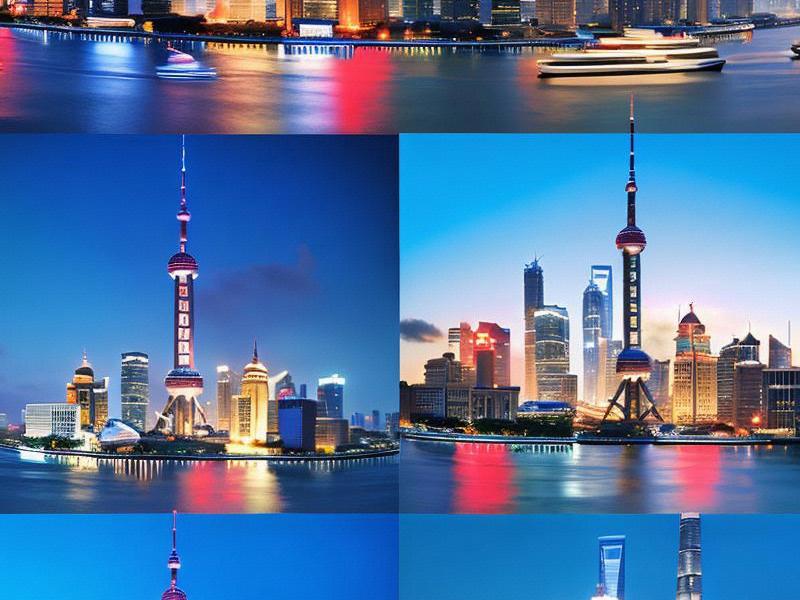This article delves into the vibrant and ever-evolving city of Shanghai, exploring its transformation from a historical port city to a global economic powerhouse. It highlights the city's remarkable urban development, economic achievements, cultural diversity, and future prospects.

Shanghai, often referred to as the "Pearl of the Orient," stands as a beacon of modernity and progress in China. This dynamic metropolis, located on the eastern coast of China, has undergone a remarkable transformation over the past few decades, emerging as one of the most influential cities in the world.
The history of Shanghai dates back to ancient times, but it was during the 19th century that the city began to gain international prominence.被迫成为通商口岸 (becoming a treaty port)(成为通商口岸), Shanghai was forcibly opened to foreign trade by Western powers. This event marked the beginning of Shanghai's transformation into a bustling international port city. The influx of foreign merchants, entrepreneurs, and workers brought with it a diverse array of cultures, ideas, and technologies that would shape the city's future.
In the early 20th century, Shanghai became known as the "Paris of the East," a cosmopolitan hub of commerce, culture, and entertainment. The city's iconic skyline was defined by the presence of numerous foreign concessions, each with its own unique architecture and style. These concessions not only brought prosperity to the city but also laid the foundation for Shanghai's rich cultural heritage.
However, the city's rapid growth and development came to an abrupt halt following the founding of the People's Republic of China in 1949. During this period, Shanghai underwent significant changes as the government implemented various policies aimed at industrialization and collectivization. Despite these challenges, the city managed to maintain its position as a major economic center in China.
The reform and opening-up policy initiated by Deng Xiaoping in 1978 marked a new era for Shanghai. The city was once again open to foreign investment and trade, and it quickly regained its status as a global economic powerhouse. Over the past few decades, Shanghai has experienced unprecedented urban development, transforming into a modern metropolis with towering skyscrapers, advanced infrastructure, and a thriving business environment.
爱上海419论坛
One of the most remarkable aspects of Shanghai's urban development is its skyline. The city is home to some of the tallest buildings in the world, including the iconic Oriental Pearl Tower, the Jin Mao Tower, and the Shanghai Tower. These architectural marvels not only symbolize the city's economic prowess but also serve as a testament to its ability to adapt and innovate in the face of rapid change.
In addition to its impressive skyline, Shanghai is also known for its advanced infrastructure. The city boasts an extensive network of highways, railways, and airports that connect it to other major cities in China and around the world. The Shanghai Metro, one of the most extensive and efficient subway systems in the world, provides convenient transportation for millions of residents and visitors.
Shanghai's economic achievements are equally impressive. The city is a major financial hub, housing the headquarters of several major banks, insurance companies, and investment firms. It is also a leading center for trade and commerce, with the Port of Shanghai being one of the busiest ports in the world. The city's diverse economy, which includes manufacturing, technology, tourism, and services, has contributed to its sustained growth and prosperity.
One of the key factors behind Shanghai's economic success is its commitment to innovation and technology. The city has invested heavily in research and development, fostering a vibrant startup ecosystem and attracting top talent from around the world. This focus on innovation has enabled Shanghai to maintain its competitive edge in the global marketplace.
上海龙凤419贵族
Culturally, Shanghai is a melting pot of traditions and modernity. The city's rich history is reflected in its numerous historical landmarks, such as the Yu Garden, the Old City God Temple, and the Nanjing Road pedestrian street. These sites offer a glimpse into the city's past, while its modern attractions, such as the Shanghai Museum, the Shanghai Grand Theatre, and the Shanghai Disneyland, showcase its contemporary vibrancy.
Shanghai's cultural diversity is further enriched by its many ethnic communities. The city is home to people from all over China and the world, each contributing their unique customs, traditions, and cuisines. This cultural melting pot has created a vibrant and inclusive atmosphere that makes Shanghai a truly unique city.
In recent years, Shanghai has also made significant strides in environmental sustainability. The city has implemented various initiatives aimed at reducing pollution, promoting green energy, and improving public transportation. These efforts have helped to make Shanghai a more livable and sustainable city for its residents.
Looking ahead, Shanghai's future prospects are bright. The city is poised to continue its rapid growth and development, driven by its strong economic foundation, innovative spirit, and commitment to sustainability. As China's global influence continues to expand, Shanghai is expected to play an increasingly important role on the world stage.
上海娱乐联盟
One of the key areas of focus for Shanghai's future development is the Yangtze River Delta region. The city is working closely with neighboring provinces and cities to promote regional integration and协同发展 (coordinated development)(协调发展). This initiative aims to crteeaa more interconnected and efficient economic network that will benefit the entire region.
Another important aspect of Shanghai's future is its role in global governance. As a leading member of the global community, Shanghai is actively participating in international organizations and forums, contributing to the development of global rules and standards. The city's experience and expertise in areas such as finance, trade, and urban management make it an invaluable partner in addressing global challenges.
In conclusion, Shanghai is a dynamic metropolis that continues to evolve and thrive in the 21st century. Its remarkable urban development, economic achievements, cultural diversity, and commitment to sustainability make it a truly unique city. As Shanghai looks to the future, it is poised to play an increasingly important role in shaping the global landscape.